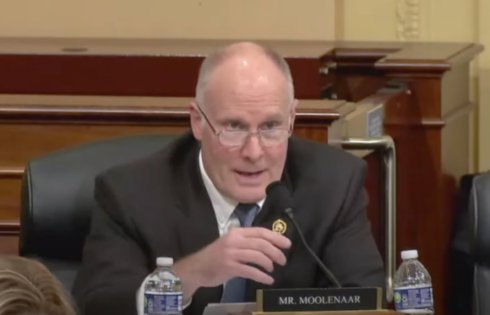
Takes aim at the ‘nonprofit industrial complex’
An instructor at Virginia Commonwealth University is taking aim at the current state of “queer politics” in a new book, slamming the “relentlessly corporate” LGBT movement for having “assimilation as its most central goal.”
Myrl Beam, an assistant professor of Gender, Sexuality and Women’s Studies at VCU, told the university’s news service that his new book “Gay, Inc.: The Nonprofitization of Queer Politics,” is an attempt to explain “a major shift in queer politics over the last half century.”
The LGBT movement used to be “explicitly leftist, anti-capitalist, critical of police violence, and was invested in resisting norms around sexuality,” Beam said in an interview with Brian McNeill, a university spokesman. “The idea of settling down, getting married and buying a house in the ‘burbs was anathema to them! So what happened to shift the movement so dramatically that now upholding norms around sexuality (like marriage, for instance) is the central goal?”
“We now have a movement that is relentlessly corporate, cares more about inclusion in the military than what the military does, and is laser-focused on discrete policy wins to the exclusion of all else,” Beam said.
“How could a movement that was so anti-assimilationist now have assimilation as its most central goal?” Beam said.
Beam blames this shift on the “nonprofit industrial complex,” describing that as “the collaboration between the state, private philanthropy, corporations and nonprofits that had come to control the organized left:”
The nonprofit form developed in the U.S. as a way to stabilize early capitalism and prevent those who were most ravaged by its inequalities from rising up and demanding a more equitable distribution of resources. The voluntary sector, what we call the nonprofit system, serves as what Janet Poppendieck calls a “moral safety valve” that normalized poverty by giving the illusion of effective action combating it. This culture of charity suggests that individual giving, rather than mass mobilization, is the way to alleviate suffering. It also suggests that the cause of that suffering is individual, rather than the product of state-supported capitalism…
Now, when you put LGBT organizations into that institutional form, those structural limitations don’t disappear. The specific effects of those structural limitations on the LGBT movement have meant that mainstream LGBT organizations have shifted toward the goals prioritized by the wealthiest and most privileged members of the LGBT community, those that have the resources to be major donors on which those organizations rely for funding. Those donors, nearly all white, mostly gay men, some lesbians, are people for whom immigration, health care, police violence and homelessness are not pressing issues. They are insulated from those issues by their wealth and privilege. So despite the fact that those issues are important to the vast majority of the LGBT community, they aren’t the issues that LGBT organizations have prioritized.
“Nonprofits are useful and necessary, especially for providing services that enable people to survive the present,” Beam said. “But they are not movements. I do think that there is a place for nonprofits in movements, but they cannot replace mass mobilizations.”
Read the whole interview here.
MORE: Public university’s ‘gay cultural studies’ gives academic credit for LGBT community activism
IMAGE: jelisua88 / Shutterstock.com
Like The College Fix on Facebook / Follow us on Twitter





Please join the conversation about our stories on Facebook, Twitter, Instagram, Reddit, MeWe, Rumble, Gab, Minds and Gettr.